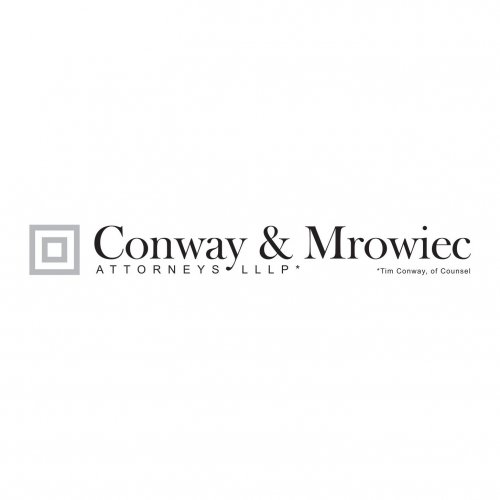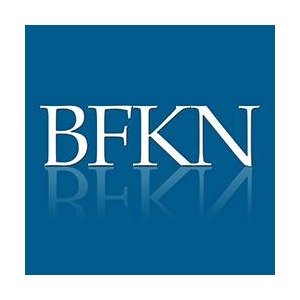Best Corporate Governance Lawyers in Chicago
Share your needs with us, get contacted by law firms.
Free. Takes 2 min.
List of the best lawyers in Chicago, United States
About Corporate Governance Law in Chicago, United States
Corporate governance refers to the system of rules, practices, and processes by which a company is directed and controlled. In Chicago, United States, corporate governance ensures that companies meet legal requirements, maintain transparency, and balance the interests of stakeholders such as shareholders, management, customers, suppliers, financiers, government, and the community. Effective corporate governance promotes ethical decision-making, accountability, and helps companies avoid legal pitfalls while enhancing their reputation and financial performance.
Why You May Need a Lawyer
Legal advice is often necessary for companies and individuals dealing with corporate governance issues in Chicago. Common scenarios include:
- Forming a new corporation or modifying governance structures for an existing company
- Drafting or amending corporate bylaws and shareholder agreements
- Navigating mergers, acquisitions, and reorganizations
- Addressing conflicts of interest or fiduciary duty concerns within the board of directors
- Resolving disputes between shareholders or among directors
- Ensuring compliance with federal, state, and local corporate regulations
- Managing disclosure requirements and annual reporting
- Dealing with investigations or enforcement actions from regulatory bodies
- Implementing risk management frameworks and internal control systems
- Dissolution or liquidation of a company
Expert legal support helps companies comply with regulations, limit liability, and create effective governance strategies that meet both legal and business needs.
Local Laws Overview
Corporate governance in Chicago is shaped by a combination of federal and state laws, as well as local regulations. Key aspects include:
- Illinois Business Corporation Act: This state law outlines the requirements for forming, operating, and dissolving corporations in Illinois, including rules for director duties, shareholder rights, and annual filings.
- Securities Regulations: Public companies in Chicago must also comply with federal securities laws, overseen by the Securities and Exchange Commission, which govern disclosure, insider trading, and shareholder communications.
- Local Ordinances: The City of Chicago may have additional ordinances relevant to business operations such as taxes, licensing, and employment practices.
- Fiduciary Duties: Directors and officers must act in the best interest of the company with care, loyalty, and good faith. Violations can result in personal liability.
- Board Structures: Illinois requires corporations to have a board of directors and hold regular meetings. Proper recordkeeping and transparency are essential.
It is essential for Chicago-based businesses to understand both the legal framework at the state and local levels, as well as compliance with relevant federal standards.
Frequently Asked Questions
What is corporate governance?
Corporate governance is the structure of rules, policies, and practices that guide how a corporation is managed and controlled, ensuring fairness and transparency for all stakeholders.
Who is responsible for corporate governance in a company?
The board of directors has primary responsibility for a company’s corporate governance, although officers and other stakeholders also play important roles.
Are all Chicago businesses required to follow the same governance rules?
No, governance requirements can vary by company type, size, and whether the business is privately held or publicly traded. State and federal laws set different standards depending on these factors.
What are the duties of corporate directors in Illinois?
Directors owe fiduciary duties to the corporation, including duties of care, loyalty, and good faith. They must act in the company’s best interests and avoid self-dealing.
What documents are required to establish corporate governance?
Essential corporate governance documents include articles of incorporation, bylaws, shareholder agreements, and minutes of board and shareholder meetings.
How often do corporate boards need to meet in Chicago?
Illinois law requires annual meetings for shareholders and periodic meetings for boards. The specific frequency is often determined by the company’s bylaws.
What legal risks do companies face if they ignore corporate governance?
Ignoring corporate governance can lead to liability for directors, regulatory penalties, loss of investor trust, increased risk of litigation, and potential company dissolution.
How can shareholders address governance issues or disputes?
Shareholders can address issues through voting, calling special meetings, seeking mediation, or pursuing legal action if their rights are violated.
What happens if corporate bylaws conflict with state law?
State law prevails over company bylaws in the event of a conflict. Bylaws must always comply with the Illinois Business Corporation Act and other relevant laws.
Do nonprofits in Chicago follow different governance rules?
Yes, nonprofits must adhere to the Illinois General Not For Profit Corporation Act and may be subject to unique governance and reporting requirements.
Additional Resources
If you need further information or assistance regarding corporate governance in Chicago, consider consulting the following resources:
- Illinois Secretary of State Business Services Division
- Illinois State Bar Association
- Chicago Bar Association
- U.S. Securities and Exchange Commission
- Small Business Administration Illinois District Office
- Office of the Attorney General of Illinois (Charitable Trust Bureau for Nonprofits)
- Local business incubators and chambers of commerce
Next Steps
If you require legal assistance in corporate governance:
- Identify your specific issue, such as bylaws, director responsibilities, or shareholder rights
- Gather any relevant corporate documents and records
- Contact a qualified corporate attorney familiar with local and state laws in Chicago
- Consider scheduling a consultation to discuss your needs and outline possible solutions
- Follow legal advice and keep thorough records of all governance actions and meetings
Working with legal professionals helps ensure your business complies with all regulations, maintains good governance practices, and protects against potential liability. Always act proactively to address concerns and seek ongoing advice as corporate needs and laws evolve.
Lawzana helps you find the best lawyers and law firms in Chicago through a curated and pre-screened list of qualified legal professionals. Our platform offers rankings and detailed profiles of attorneys and law firms, allowing you to compare based on practice areas, including Corporate Governance, experience, and client feedback.
Each profile includes a description of the firm's areas of practice, client reviews, team members and partners, year of establishment, spoken languages, office locations, contact information, social media presence, and any published articles or resources. Most firms on our platform speak English and are experienced in both local and international legal matters.
Get a quote from top-rated law firms in Chicago, United States — quickly, securely, and without unnecessary hassle.
Disclaimer:
The information provided on this page is for general informational purposes only and does not constitute legal advice. While we strive to ensure the accuracy and relevance of the content, legal information may change over time, and interpretations of the law can vary. You should always consult with a qualified legal professional for advice specific to your situation.
We disclaim all liability for actions taken or not taken based on the content of this page. If you believe any information is incorrect or outdated, please contact us, and we will review and update it where appropriate.

















